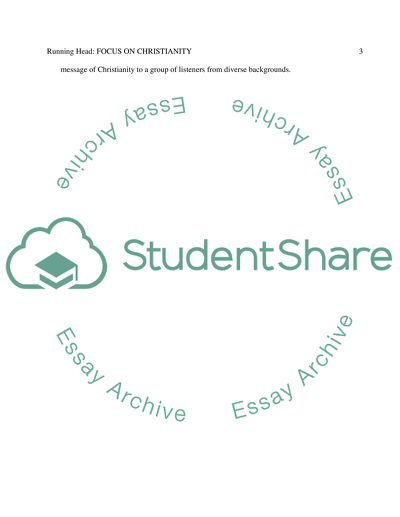Cite this document
(“World Religions: Focus on Christianity Essay Example | Topics and Well Written Essays - 1750 words”, n.d.)
Retrieved from https://studentshare.org/religion-and-theology/1482184-week
Retrieved from https://studentshare.org/religion-and-theology/1482184-week
(World Religions: Focus on Christianity Essay Example | Topics and Well Written Essays - 1750 Words)
https://studentshare.org/religion-and-theology/1482184-week.
https://studentshare.org/religion-and-theology/1482184-week.
“World Religions: Focus on Christianity Essay Example | Topics and Well Written Essays - 1750 Words”, n.d. https://studentshare.org/religion-and-theology/1482184-week.


